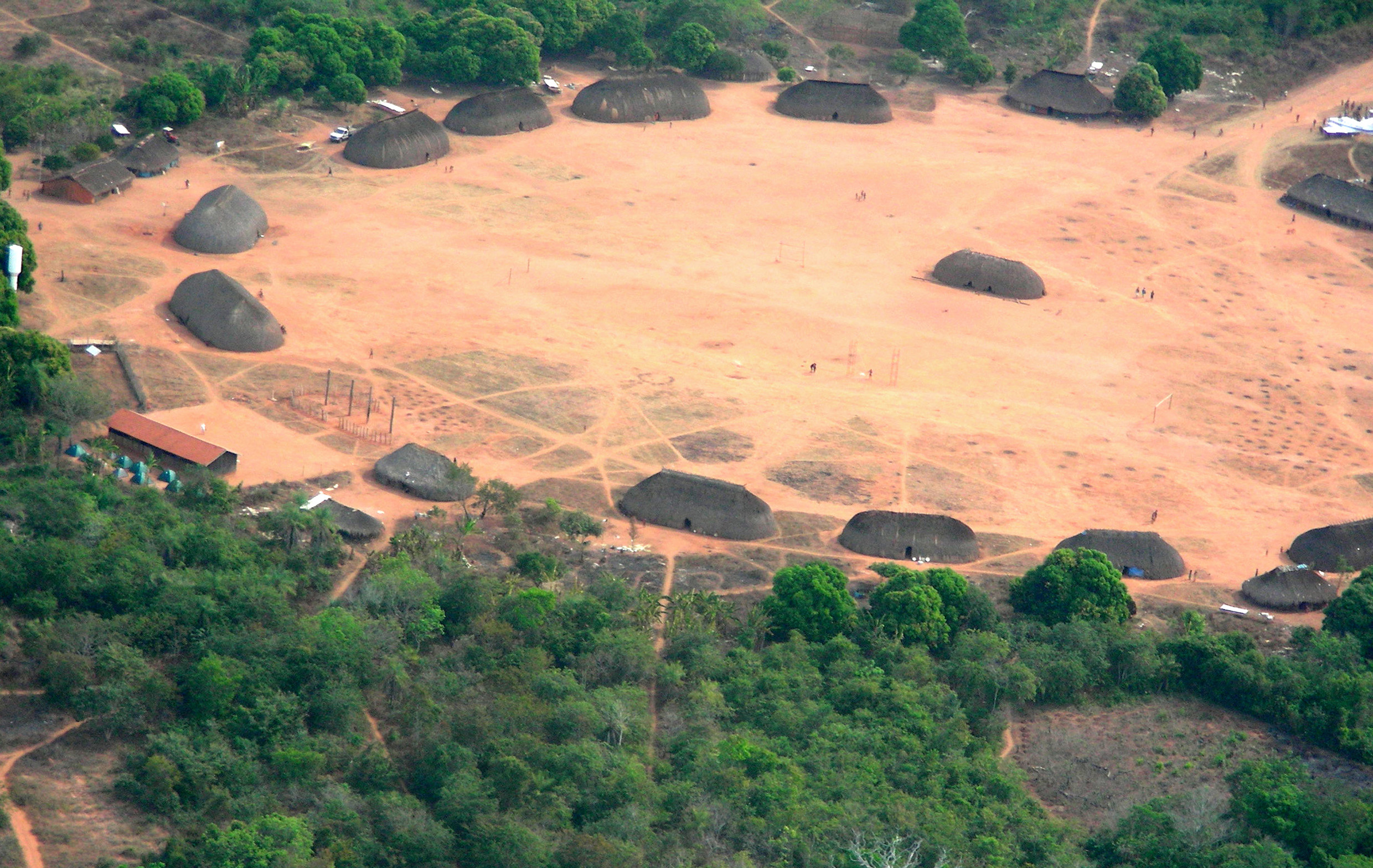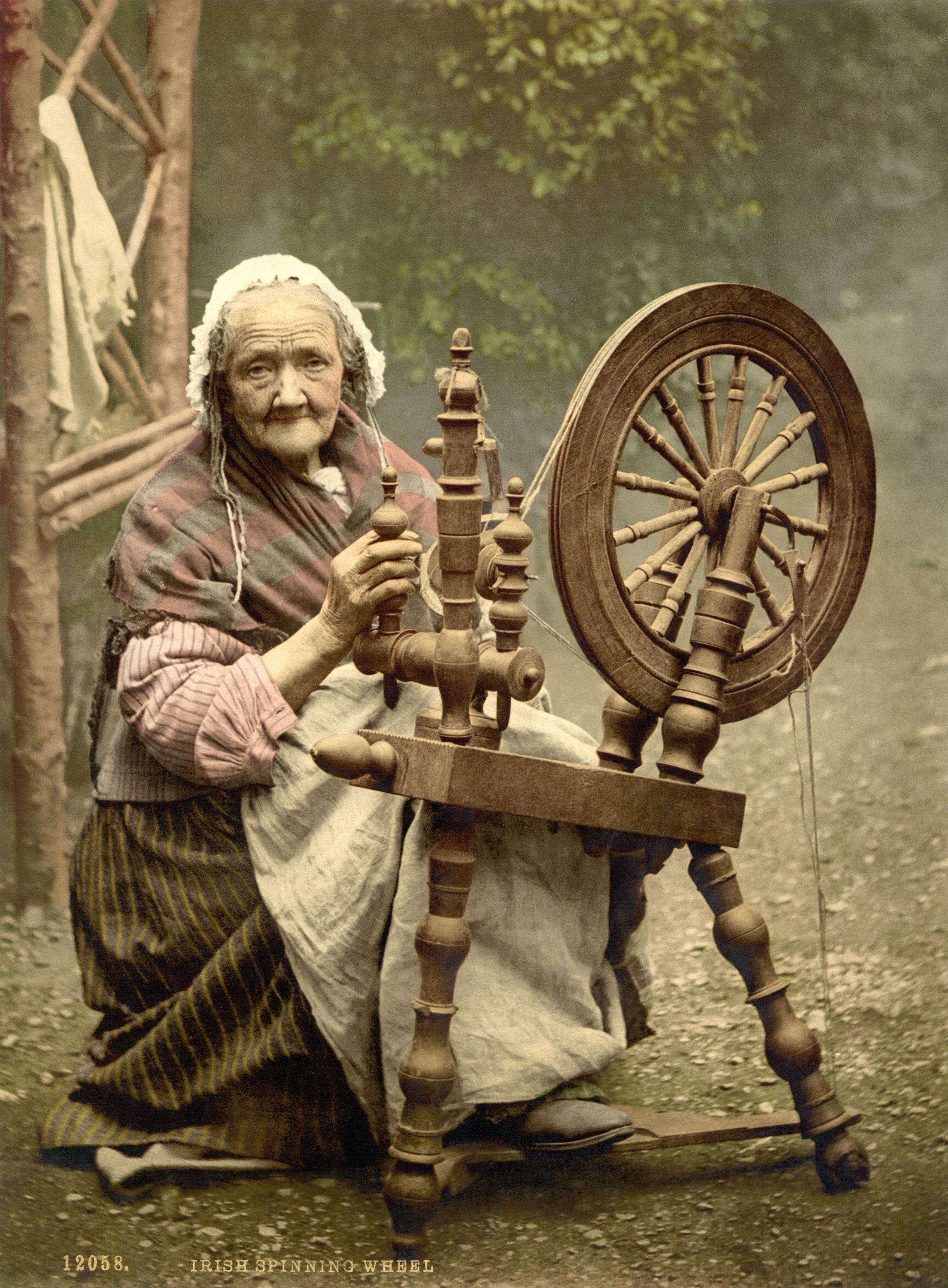|
Rio Pardo (tribe)
The Kawahiva, formerly called the Rio Pardo Indians, are an uncontacted indigenous tribe who live near the city of Colniza in Mato Grosso, close to the Rio Pardo in the north of Mato Grosso, Brazil. They are usually on the move and have little contact with outsiders. Thus, they are known primarily from physical evidence they have left behind – arrows, baskets, hammocks, and communal houses. Knowledge of the Kawahiva's modern existence dates to 1999, but it is possible the group dates back to the 1700s. Their survival has been threatened by deforestation, illegal logging, and attempts to kill or enslave them. In 2005, the Brazilian government launched an investigation into possible genocide of the Kawahiva, but ultimately no one was put on trial. The tribe's land has been under local protection since 2001, but the protection has periodically been removed by the courts only to be later reinstated. In 2012, the land was turned into an official reservation. In 2013, the government ... [...More Info...] [...Related Items...] OR: [Wikipedia] [Google] [Baidu] |
Uncontacted Peoples
Uncontacted peoples are groups of indigenous peoples living without sustained contact with neighbouring communities and the world community. Groups who decide to remain uncontacted are referred to as indigenous peoples in voluntary isolation. Legal protections make estimating the total number of uncontacted tribes challenging, but estimates from the Inter-American Commission on Human Rights in the UN and the non-profit group Survival International point to between 100 and 200 tribes numbering up to 10,000 individuals.Report of the Regional Seminar on indigenous peoples in voluntary isolation and in initial contact of the Amazonian Basin and El Chaco, Santa Cruz de la Sierra, Bolivia (20–22 November 2006), presented by the Office of the United Nations High Commissioner for Human Rights (OHCHR) and the International Work Group on Indigenous Affairs (IWGIA), E/C.19/2007/CRP.1, March 28, 2007, para 1. A majority of tribes live in South America, particularly Brazil, where the Braz ... [...More Info...] [...Related Items...] OR: [Wikipedia] [Google] [Baidu] |
Kagwahiva Language
Kawahíva (Kawahíb, Kagwahib) is a Tupi–Guarani dialect cluster of Brazil. The major variety is Tenharim. The Tenharim (self-designation, Pyri 'near, together'), Parintintín, Jiahúi, Amondawa, Karipúna (not to be confused with neither the Panoan group, nor the Carib-based creole spoken in the state of Amapá, which all have the same name), Uru-eu-wau-wau (self-designation, Jupaú), Júma, Piripkúra, and Capivarí all call themselves ''Kawahíva''. Their speech is mutually intelligible, and also similar with other languages now extinct. The closest Tupí-Guaraní language seems to be Apiaká, spoken in Mato Grosso. Varieties There are different internal classifications of the pan-Kawahíwa, which differ in, e.g., whether Kayabí and Apiaká should be included as part of the dialectal cluster. The one listed in Aguilar (2013, 2018) follows: *Northern Kawahíwa ** ** ** ** *Southern Kawahíwa **Jupaú () ** ** ** Apiaká **Kayabí (Kawaiwete) ** **isolated groups Lang ... [...More Info...] [...Related Items...] OR: [Wikipedia] [Google] [Baidu] |
Indigenous Peoples In Brazil
Indigenous peoples in Brazil ( pt, povos indígenas no Brasil) or Indigenous Brazilians ( pt, indígenas brasileiros, links=no) once comprised an estimated 2000 tribes and nations inhabiting what is now the country of Brazil, before European contact around 1500. Christopher Columbus thought he had reached the East Indies, but Portuguese Vasco da Gama had already reached India via the Indian Ocean route, when Brazil was colonized by Portugal. Nevertheless, the word ("Indians") was by then established to designate the people of the New World and continues to be used in the Portuguese language to designate these people, while a person from India is called in order to distinguish the two. At the time of European contact, some of the Indigenous people were traditionally semi-nomadic tribes who subsisted on hunting, fishing, gathering and migrant agriculture. Many tribes suffered extinction as a consequence of the European settlement and many were assimilated into the Brazilian po ... [...More Info...] [...Related Items...] OR: [Wikipedia] [Google] [Baidu] |
Ethnic Groups In Brazil
Brazilian society is made up of a confluence of people of several different origins, from the original Native Brazilians, with the influence of Portuguese colonists and people of African descent. Other major significant groups include Italians, Spaniards, Germans, Lebanese and Japanese. Latin Europe accounted for four-fifths of the arrivals (1.8 million Portuguese, 1.5 million Italians, and 700,000 Spaniards). Brazil has seen greater racial equality over time. According to a recent review study, "There has been major, albeit uneven, progress in these terms since slavery, which has unfortunately not wholly translated into equality of income: only in 2011 did the black-to-white income ratio eclipse its 1960 level, although it appears to be at an all-time high. Education and migration were important factors in closing the gap, whereas school quality and discrimination may explain its persistence." Historic background The Brazilian population was formed by the influx of Po ... [...More Info...] [...Related Items...] OR: [Wikipedia] [Google] [Baidu] |
FUNAI
is a Japanese consumer electronics company headquartered in Daitō, Osaka. Apart from producing its own branded electronic products, it is also an OEM providing assembled televisions and video players/recorders to major corporations such as Sharp, Toshiba, Denon, and others. Funai supplies inkjet printer hardware technology to Dell and Lexmark, and produces printers under the Kodak name. Its United States-based subsidiary Funai Corporation, Inc., based in Torrance, California, markets Funai products in the US, along with Funai-licensed brands including Philips, Magnavox, Emerson Radio, and Sanyo. Funai is the main supplier of electronics to Walmart and Sam's Club stores in the US, with production output in excess of 2 million flat-panel televisions during the summertime per year for Black Friday sale. History Funai was founded by Tetsuro Funai, the son of a sewing machine manufacturer. During the 1950s before the company was formed, Funai produced sewing machines and was one ... [...More Info...] [...Related Items...] OR: [Wikipedia] [Google] [Baidu] |
Munduruku
The Munduruku, also known as Mundurucu or Wuy Jugu or BMJ, are an indigenous people of Brazil living in the Amazon River basin. Some Munduruku communities are part of the Coatá-Laranjal Indigenous Land. They had an estimated population in 2014 of 13,755. History Traditionally the Munduruku's territory, called Mundurukânia in the 19th century, was the Tapajós river valley. In 1788, they completely defeated their ancient enemies the Muras. After 1803 they lived at peace with the Brazilians. The Munduruku live in southwest of the state of Pará along the Tapajós river and its tributaries in the municipalities of Santarém, Itaituba and Jacareacanga, in the east of the state of Amazonas along the Canumã River in the municipality of Nova Olinda and the municipality of Borba, and in the north of the state of Mato Grosso in the Peixes River region in the municipality of Juara. They usually inhabit forest regions on the margins of navigable rivers, and their traditional vill ... [...More Info...] [...Related Items...] OR: [Wikipedia] [Google] [Baidu] |
James S
James is a common English language surname and given name: *James (name), the typically masculine first name James * James (surname), various people with the last name James James or James City may also refer to: People * King James (other), various kings named James * Saint James (other) * James (musician) * James, brother of Jesus Places Canada * James Bay, a large body of water * James, Ontario United Kingdom * James College, a college of the University of York United States * James, Georgia, an unincorporated community * James, Iowa, an unincorporated community * James City, North Carolina * James City County, Virginia ** James City (Virginia Company) ** James City Shire * James City, Pennsylvania * St. James City, Florida Arts, entertainment, and media * ''James'' (2005 film), a Bollywood film * ''James'' (2008 film), an Irish short film * ''James'' (2022 film), an Indian Kannada-language film * James the Red Engine, a character in ''Thomas the Tank En ... [...More Info...] [...Related Items...] OR: [Wikipedia] [Google] [Baidu] |
Tupí People
A subdivision of the Tupi-Guarani linguistic families, the Tupi people were one of the largest groups of indigenous Brazilians before its colonization. Scholars believe that while they first settled in the Amazon rainforest, from about 2,900 years ago the Tupi started to migrate southward and gradually occupied the Atlantic coast of Southeast Brazil. Many Tupi people today are merged with the Guaraní people, forming the Tupi–Guarani languages. Guarani languages are linguistically different from the Tupian languages. History The Tupi people inhabited almost all of Brazil's coast when the Portuguese first arrived there. In 1500, their population was estimated at 1 million people, nearly equal to the population of Portugal at the time. They were divided into tribes, each tribe numbering from 300 to 2,000 people. Some examples of these tribes are: ''Tupiniquim'', '' Tupinambá'', ''Potiguara'', ''Tabajara'', '' Caetés'', ''Temiminó'', ''Tamoios''. The Tupi were adept agricu ... [...More Info...] [...Related Items...] OR: [Wikipedia] [Google] [Baidu] |
Survival International
Survival International is a human rights organisation formed in 1969, a London based charity that campaigns for the rights of indigenous and/or tribal peoples and uncontacted peoples. The organisation's campaigns generally focus on tribal peoples' desires to keep their ancestral lands. Survival International calls these peoples "some of the most vulnerable on earth", and aims to eradicate what it calls "misconceptions" used to justify violations of human rights. It also aims to publicize harm caused to tribes by corporations and governments. Survival International states that it aims to help foster tribal people's self-determination. Survival International is in association with the Department of Public Information of the United Nations and in consultative status with the United Nations Economic and Social Council. To ensure freedom of action, Survival accepts no government funding. It is a founding member and a signatory organization of the ''International NGO Accountability ... [...More Info...] [...Related Items...] OR: [Wikipedia] [Google] [Baidu] |
Indigenous Peoples
Indigenous peoples are culturally distinct ethnic groups whose members are directly descended from the earliest known inhabitants of a particular geographic region and, to some extent, maintain the language and culture of those original peoples. The term ''Indigenous'' was first, in its modern context, used by Europeans, who used it to differentiate the Indigenous peoples of the Americas from the European settlers of the Americas and from the Sub-Saharan Africans who were brought to the Americas as enslaved people. The term may have first been used in this context by Sir Thomas Browne in 1646, who stated "and although in many parts thereof there be at present swarms of ''Negroes'' serving under the ''Spaniard'', yet were they all transported from ''Africa'', since the discovery of ''Columbus''; and are not indigenous or proper natives of ''America''." Peoples are usually described as "Indigenous" when they maintain traditions or other aspects of an early culture that is assoc ... [...More Info...] [...Related Items...] OR: [Wikipedia] [Google] [Baidu] |
Hunter-gatherer
A traditional hunter-gatherer or forager is a human living an ancestrally derived lifestyle in which most or all food is obtained by foraging, that is, by gathering food from local sources, especially edible wild plants but also insects, fungi, honey, or anything safe to eat, and/or by hunting game (pursuing and/or trapping and killing wild animals, including catching fish), roughly as most animal omnivores do. Hunter-gatherer societies stand in contrast to the more sedentary agricultural societies, which rely mainly on cultivating crops and raising domesticated animals for food production, although the boundaries between the two ways of living are not completely distinct. Hunting and gathering was humanity's original and most enduring successful competitive adaptation in the natural world, occupying at least 90 percent of human history. Following the invention of agriculture, hunter-gatherers who did not change were displaced or conquered by farming or pastoralist groups in ... [...More Info...] [...Related Items...] OR: [Wikipedia] [Google] [Baidu] |
Spinning Wheel
A spinning wheel is a device for spinning thread or yarn from fibres. It was fundamental to the cotton textile industry prior to the Industrial Revolution. It laid the foundations for later machinery such as the spinning jenny and spinning frame, which displaced the spinning wheel during the Industrial Revolution. Function The basic spinning of yarn involves taking a clump of fibres and teasing a bit of them out, then twisting it into a basic string shape. The spinner continues pulling and twisting to make it longer and longer, and to control the thickness. Thousands of years ago, people began doing this onto a stick, called a spindle, which was a very lengthy process. The actual wheel part of a spinning wheel does not take the place of the spindle, instead it automates the twisting process, allowing one to "twist" the thread without having to constantly do so manually, and also the size of the wheel lets one more finely control the amount of twist. The thread still ends up ... [...More Info...] [...Related Items...] OR: [Wikipedia] [Google] [Baidu] |







